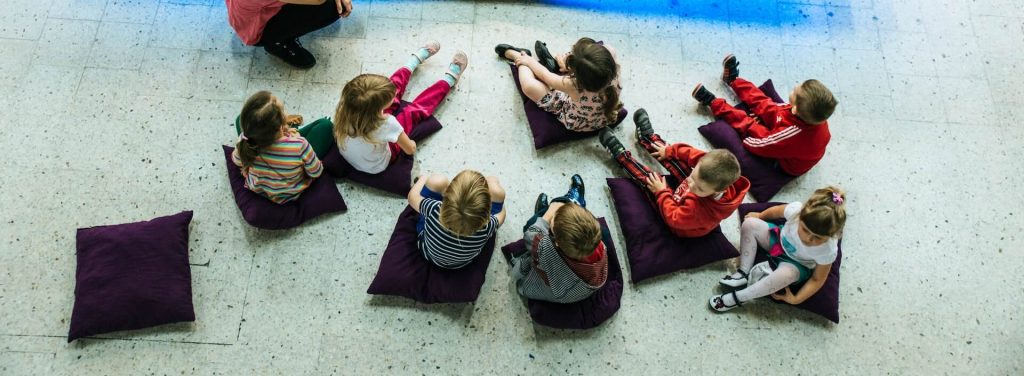Student-centric advice and objective recommendations
Higher education has never been more confusing or expensive. Our goal is to help you navigate the very big decisions related to higher ed with objective information and expert advice. Each piece of content on the site is original, based on extensive research, and reviewed by multiple editors, including a subject matter expert. This ensures that all of our content is up-to-date, useful, accurate, and thorough.
Our reviews and recommendations are based on extensive research, testing, and feedback. We may receive commission from links on our website, but that doesn’t affect our editors’ opinions. Our marketing partners don’t review, approve or endorse our editorial content. It’s accurate to the best of our knowledge when posted. You can find a complete list of our partners here.
What is a Microschool?
 By
Cece Gilmore
By
Cece Gilmore 
Cece Gilmore is a Content Writer at Scholarships360. Cece earned her undergraduate degree in Journalism and Mass Communications from Arizona State University. While at ASU, she was the education editor as well as a published staff reporter at Downtown Devil. Cece was also the co-host of her own radio show on Blaze Radio ASU.
Full BioLearn about our editorial policies

Cari Schultz is an Educational Review Board Advisor at Scholarships360, where she reviews content featured on the site. For over 20 years, Cari has worked in college admissions (Baldwin Wallace University, The Ohio State University, University of Kentucky) and as a college counselor (Columbus School for Girls).
Full BioLearn about our editorial policies

What do microschools and one-room schoolhouses of the last century have in common? More than you thought! A microschool is a relatively new type of school that is reshaping the traditional way we teach students. As the name suggests, microschools are “micro” in that they usually have small class sizes. Keep reading our guide to learn how microschools bring the best of the past and present together!
What exactly is a microschool?
Defining what a microschool is tricky because it is a relatively new concept. However, there seems to be a general consensus about some of the main characteristics of microschools.
Characteristics of microschools
- Small class sizes ranging from 10-20 students in a class
- Student-led personalized learning
- Project-based learning
- Different ages learn together in one classroom
- Heavy use of online and digital platforms built for learning
- No standardized testing or mandatory curriculum
- Can operate from anywhere, including private homes, churches, and libraries
Also see: What is a magnet school?
What are some benefits of a microschool?
Smaller class sizes
Due to their small class sizes, microschools promote a closer teacher-student relationship. This tight knit community provides students with the opportunity to gain more hands-on experiences and more constructive feedback throughout their learning.
Student directed personalized learning
Microschools promote student-led and project-based learning which in turn gets students excited to learn. Teamwork is encouraged, and students often learn from and teach older or younger students. Microschools can be compared to the “one room schoolhouse” of the past with a twist of technology.
Flexible learning
Due to technology, microschools are able to offer flexible schedules; some microschools only operate a few days a week while others operate for a few hours a day. Microschools often use blended learning formats, which offers more opportunity for active engaged learning while in the face-to-face classroom.
Online based learning and digital platforms are often used in microschools. Therefore, students are able to continue to learn even when they are not in the classroom physically.
Don’t miss: What is a learning pod?
How much do microschools cost?
Microschools vary significantly in cost. Tuition can range anywhere from $4,000 to $25,000 per academic year. Therefore, it is critical to complete background research on any microschools you may be interested in to learn about and compare prices.
Related: Finding scholarships for K-12 schools
Who is eligible to attend a microschool?
If you or your student is in grades K-12, then you are eligible to attend a microschool. Like any school, complete thorough research on the microschool to figure out if the cost, curriculum, and location make it the right fit for you and your family.
Also see: Private vs public K-12: What to consider
Related: All about Montessori schools
Frequently asked questions about microschools
Did the pandemic increase the popularity of microschools?
During the COVID-19 Pandemic, educating children was challenging for most. Many schools placed restrictions on face-to-face teaching and eventually switched to online schooling. Concerned parents turned to microschools and learning pods during that time, feeling it was safer for their children to interact with smaller groups in light of the Pandemic.
Can anyone create their own microschool?
Basically, anyone can open a microschool. There are no credentials or certifications required (although always check with your state, as rules can change quickly), but most microschools require whatever licensing is needed to operate a business.
Where can I find a microschool?
As always, the best way is through a word-of-mouth recommendation. There are also a number of organizations that connect families with local microschools. A simple internet search works!
Don’t miss: All about charter schools


